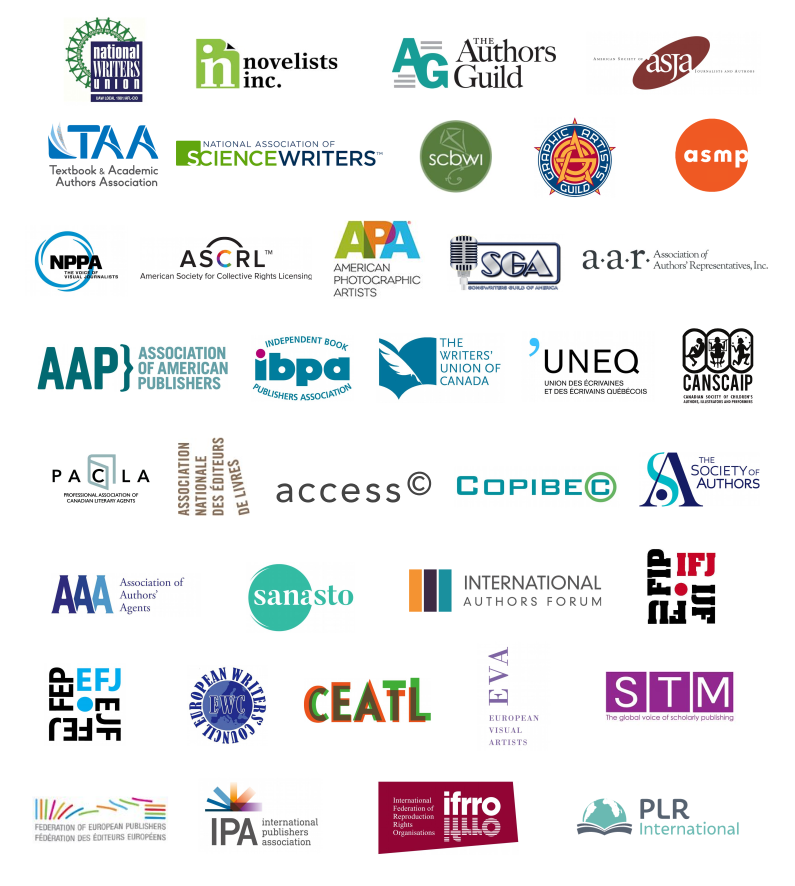(download as PDF)
Controlled Digital Lending (CDL):
An appeal to readers and librarians from the victims of CDL
February 2019
As working writers, translators, photographers, and graphic artists; as unions, organizations, and federations representing the creators of works included in published books; as book publishers; and as reproduction rights and public lending rights organizations; we oppose so-called “Controlled Digital Lending” (CDL) as a flagrant violation of copyright and authors’ rights.
The copyright infringement inherent in CDL is not a victimless crime. As the victims of CDL, we want librarians, archivists, and readers to understand how they are harming the authors of the books they love by participating in CDL projects, even if they have the best of intentions.
The attached FAQ was written to explain to authors, publishers, readers, librarians, and archivists what CDL is, how it differs from traditional and legitimate new forms of library lending, how it violates the economic and moral rights of authors, and how it makes it even harder for authors to try to make a living from writing or to afford to devote time to writing.
When writers can’t make a living, they can’t afford to keep writing, and readers lose too.
Well-meaning librarians, archivists, and readers, who don’t intend to deprive authors of their livelihoods, are being misled by false claims from proponents of CDL.
Under CDL, printed books are being scanned and distributed online to readers worldwide by the Internet Archive and U.S. and Canadian libraries.
CDL is not comparable to lending of physical books by libraries. CDL is not “fair use” as defined in U.S. copyright law, and an exception to or limitation of copyright to allow CDL without permission or remuneration would not be permitted by the Berne Convention on Copyright. CDL interferes with many of the normal ways, including new ways largely unnoticed by librarians, that authors are earning money from written and graphic works included in so-called “out of print” books. There is no basis for a good-faith belief that CDL is legal under either U.S. or international law.
We appeal for a dialogue among writers, authors, publishers, and librarians on how to enable and create the digital libraries we all want, in ways that fully respect authors’ rights.
Signed:
- National Writers Union (UAW Local 1981, AFL-CIO)
- Novelists, Inc.
- Authors Guild
- American Society of Journalists and Authors (ASJA)
- Textbook & Academic Authors Association (TAA)
- National Association of Science Writers (NASW)
- Society of Children’s Book Writers and Illustrators (SCBWI)
- Graphic Artists Guild
- American Society of Media Photographers (ASMP)
- National Press Photographers Association (NPPA)
- American Society for Collective Rights Licensing (ASCRL)
- American Photographic Artists (APA)
- Songwriters Guild of America (SGA)
- Association of Authors’ Representatives (AAR)
- Association of American Publishers (AAP)
- Independent Book Publishers Association (IBPA)
- The Writers Union of Canada (TWUC)
- Union des écrivaines et des écrivains québécois (UNEQ)
- Canadian Society of Children’s Authors, Illustrators and Performers (CANSCAIP)
- Professional Association of Canadian Literary Agents (PACLA)
- Association nationale des éditeurs de livres (ANEL)
- Access Copyright
- Copibec
- Society of Authors
- Association of Authors’ Agents (AAA)
- Sanasto
- International Authors Forum (IAF)
- International Federation of Journalists (IFJ)
- European Federation of Journalists (EFJ)
- European Writers’ Council (EWC)
- CEATL – European Council of Literary Translators’ Associations
- European Visual Artists (EVA)
- Federation of European Publishers (FEP)
- International Publishers Association (IPA)
- International Association for Scientific, Technical and Medical Publishers (STM)
- International Federation of Reproduction Rights Organisations (IFRRO)
- Public Lending Right International
- Mystery Writers of America (MWA)
- Canadian Authors Association (CAA)
- The Copyright Alliance
- Romance Writers of America (RWA)


 NWU is the sole provider of IFJ Press Passes to freelance journalists in the U.S.
NWU is the sole provider of IFJ Press Passes to freelance journalists in the U.S.